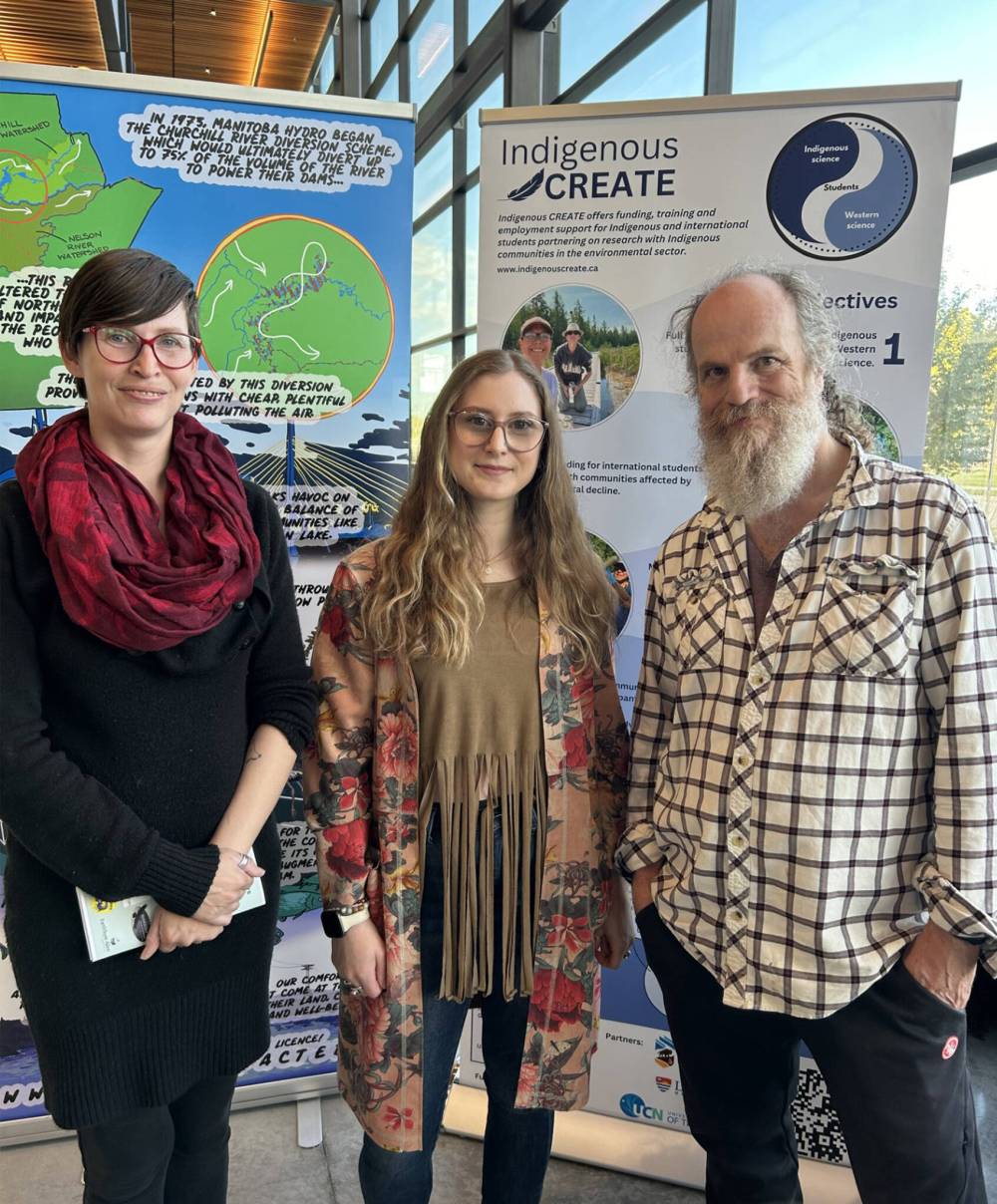U of M strategic research plan: ‘bold’ goals, Indigenous focus
Advertisement
Read this article for free:
or
Already have an account? Log in here »
To continue reading, please subscribe:
Monthly Digital Subscription
$0 for the first 4 weeks*
- Enjoy unlimited reading on winnipegfreepress.com
- Read the E-Edition, our digital replica newspaper
- Access News Break, our award-winning app
- Play interactive puzzles
*No charge for 4 weeks then price increases to the regular rate of $19.00 plus GST every four weeks. Offer available to new and qualified returning subscribers only. Cancel any time.
Monthly Digital Subscription
$4.75/week*
- Enjoy unlimited reading on winnipegfreepress.com
- Read the E-Edition, our digital replica newspaper
- Access News Break, our award-winning app
- Play interactive puzzles
*Billed as $19 plus GST every four weeks. Cancel any time.
To continue reading, please subscribe:
Add Free Press access to your Brandon Sun subscription for only an additional
$1 for the first 4 weeks*
*Your next subscription payment will increase by $1.00 and you will be charged $16.99 plus GST for four weeks. After four weeks, your payment will increase to $23.99 plus GST every four weeks.
Read unlimited articles for free today:
or
Already have an account? Log in here »
Hey there, time traveller!
This article was published 08/10/2024 (423 days ago), so information in it may no longer be current.
At the University of Manitoba’s Environmental Conversation Lab, Stéphane McLachlan’s team is very much tuned into the principle of the school’s new five-year strategic research plan that calls for championing research by, for and with Indigenous peoples.
Among other things, it’s built a free digital surveying tool (Our Data Indigenous) that’s being used by more than 30 Indigenous communities for all sorts of data collection — from moose populations to surveying community desires regarding a proposed recreation centre.
The digital app adheres to the First Nations principle of OPAC (ownership, control, access and possession of data).

MARTIN CASH / FREE PRESS
Ashley Wolfe (from left), a recent graduate; Becky Filopoulos, co-ordinator at the Environmental Conservation Lab at the University of Manitoba; and Stéphane McLachlan, professor and co-ordinator of the Environmental Conservation Lab at Tuesday’s U of M presentation.
“If they don’t have control over the research or data, then they are still subject to whatever powers dynamics there are,” said McLachlan, a professor in the department of environment and geography.
The Environmental Conservation Lab represents climate action and sustainability, one of seven themes of the university’s new research plan, titled “Change Through Research.”
In a presentation Tuesday at the south Winnipeg school’s Smartpark area, Mario Pinto, U of M vice-president, research and international, said what will set the strategic research plan apart from other universities’ is a commitment to “explore social and economic reconciliation at scale.”
The plan has seven research themes: foundations; social justice and human rights; research by, with, and for Indigenous Peoples; water and food security; health and well-being; climate action and sustainability; and Manitoba, Hudson Bay, Arctic and the world.
With Indigenous people making up 18 per cent of Manitoba’s population (according to 2016 federal data), the U of M is well-positioned to take those themes and interweave them with Indigenous knowledge, Pinto said.
“Social justice and human rights are admittedly one of these interweaving themes, but where are we getting that insight from? We are going to embrace our Indigenous brothers and sisters and bring in their knowledge as key and fundamental to what we do.”
Pinto cited a major funding proposal around opening up accessibility and a new shipping route in western Hudson Bay and the high Arctic.
“It’s very bold,” he said. “We are doing it with four Indigenous elders who are the co-principal investigators for the first time.
“This is not just an add-on, this is from the ground up — at the beginning. We thrashed it out over a year. What can we do that is significant, that will preserve their habit and preserve their way of life yet provide an opportunity for economic development?”
In late August, the U of M opened its Churchill Marine Observatory, emphasizing the fact Manitoba is a maritime province — something Feiyue Wang, Canada Research Chair in Arctic Environmental Chemistry and the observatory’s project lead, thinks is something the province should embrace.
Among other things, his work (REACH Initiative: Reimagining Arctic and Central Canada Accessibility through Hudson Bay) is taking into account the thawing permafrost and what that means to the current rail transportation to Churchill, among other issues.
Along with the seven themes, the research will be supported through the four Ps: people, partnerships, platforms and process.
Pinto said included in the multi-disciplinary approach will be a much more diversified approach to research fundraising.
“The university is cash poor and the province is cash poor,” he said. “We are looking outside Canada for research funding.”
For instance, the university recently received its first major grant from Open Philanthropy, a foundation that makes grants based on the principles of effective altruism.
While the U of M has had great success in accessing funding from the Gates Foundation, he said it has never tapped well-funded organizations such as Horizon Europe and Wellcome Trust.
“The key is to attract external funding,” he said. “We have mobilized all faculties.”
Within the next five years, the plan’s goals are to place the U of M into the top 10 in Canada in the Center for World University Rankings and top 200 in its world rankings, and top 251-to-300 in Times Higher Education rankings and top 100 in its impact rankings.
martin.cash@freepress.mb.ca


